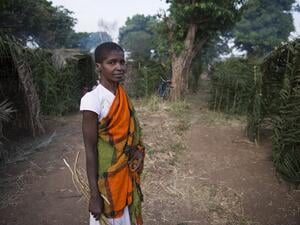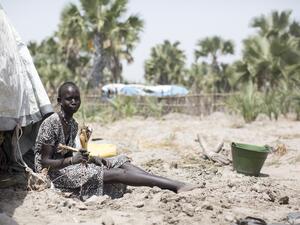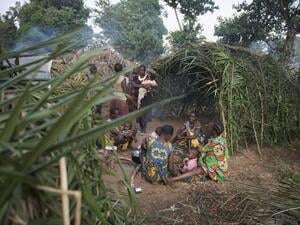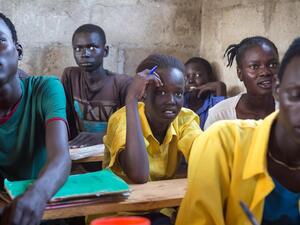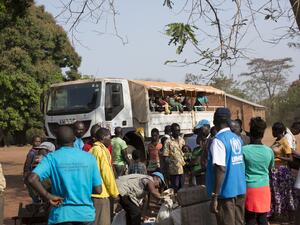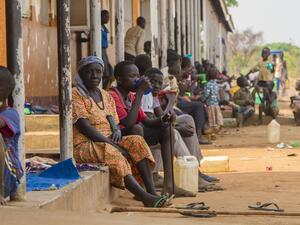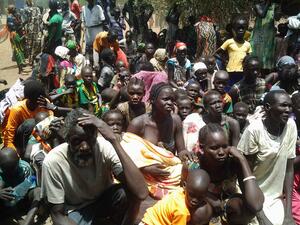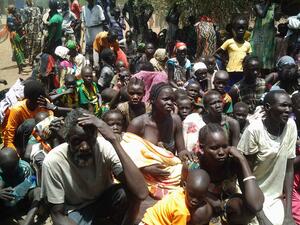Stretched UNHCR faces difficulties containing hepatitis E outbreak in South Sudan
Stretched UNHCR faces difficulties containing hepatitis E outbreak in South Sudan

An elderly refugee is given medical care on arrival at a camp in South Sudan. UNHCR is concerned about health problems.
JUBA, South Sudan, November 9 (UNHCR) - The UN refugee agency on Friday warned that its capacity to contain an outbreak of hepatitis E among the refugee population in South Sudan was increasingly stretched at a time when funding for its emergency operation was depleted. "The risks will grow if, as currently anticipated, we see fresh inflows of refugees from South Kordofan and Blue Nile states in neighbouring Sudan," spokesman Adrian Edwards added.
Due to insecurity and worsening humanitarian conditions in South Kordofan and Blue Nile states, UNHCR staff on the ground expect thousands of new refugees to cross in the next weeks as roads become passable after the rainy season.
UNHCR and its partners, including South Sudan's national health authorities, are already fighting an outbreak of hepatitis E in Upper Nile and Unity states, two regions where the disease is endemic and where 175,000 Sudanese refugees have found shelter.
"We have seen 1,050 cases of hepatitis E in the refugee camps," said Edwards. "To date, 26 refugees have died in camps in Upper Nile. This is 10 more deaths since mid-September," he added. The hepatitis E virus is contracted and spread through consuming contaminated food and water. It damages the liver.
Potentially fatal, the risk of infection is high in densely populated settings such as refugee camps. This is further exacerbated in the rainy season due to flooding and poor sanitation. Women and small children are the most vulnerable.
Early diagnosis is also crucial for the survival of patients. Edwards said UNHCR was working with the United States Centres for Disease Control and Prevention, which has sent six staff to test water and blood samples and conduct house-to-house interviews on hygiene practices.
To counter the spread of the disease among the tens of thousands of Sudanese refugees in South Sudan, "We are promoting better hygiene practices through hundreds of trained community workers. In all camps this community outreach exercise includes active case finding," Edwards said.
The refugee agency has also been working to improve the supply of clean water in the camps, as well as upgrade latrines and provide more washing stations and soap.
These measures have helped to slow the spread of the disease. However, UNHCR is struggling to meet the minimum humanitarian standards such as the provision of 15 to 20 litres of safe drinking water per refugee per day or building enough latrines so that each unit is shared by no more than 20 refugees.
Edwards stressed that UNHCR's South Sudan operation is seriously underfunded. "UNHCR needs a minimum of US$20 million until the end of the year to keep up basic life-saving activities. Of our revised appeal for US$186 million, only 40 per cent has been received so far. International NGOs also need additional funding beyond that amount to ensure that all activities can be carried out as needed," he stressed.

